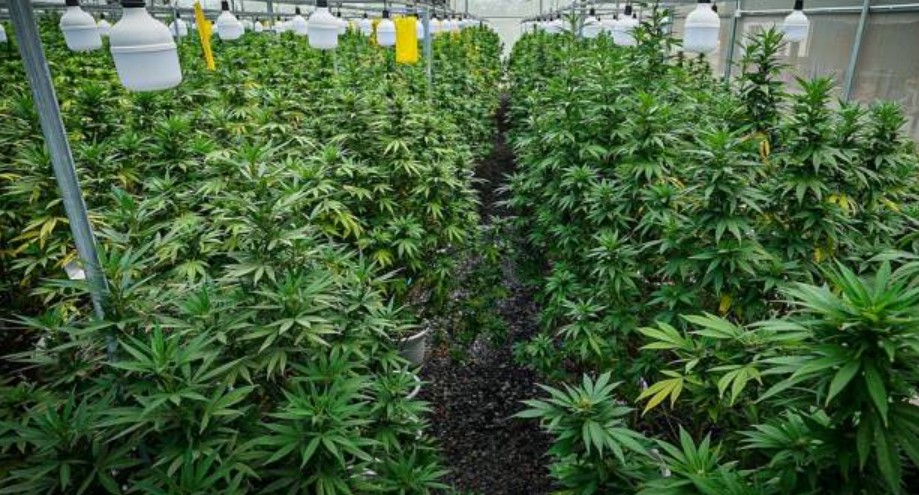
A Guide to Selling Cannabis in Thailand
Thailand has recently made significant strides in its cannabis legislation, creating new opportunities for businesses interested in entering the cannabis market. With the legalization of medical cannabis and the decriminalization of recreational use in specific contexts, entrepreneurs and investors have a unique chance to tap into the growing demand for cannabis products in the country. In this article, we will explore the essential steps and considerations to successfully sell cannabis in Thailand


Understand the Legal Landscape: Before venturing into the cannabis industry, it is crucial to familiarize yourself with the current legal framework in Thailand. While medical cannabis has been legalized for specific purposes, recreational use is still subject to regulations. Stay updated with the latest laws, regulations, and licensing requirements to ensure compliance and avoid legal issues.
Research the Market: Conduct thorough market research to gain insights into the local cannabis industry. Identify the target demographic, understand their preferences, and analyze the competition. Evaluate consumer trends, potential distribution channels, and pricing strategies to position your cannabis products effectively.
Establish the Right Business Structure: Choose the appropriate business structure that aligns with your goals and legal requirements. Options include setting up a cannabis cultivation facility, processing and manufacturing cannabis products, or operating as a distributor or retailer. Consider seeking legal counsel to navigate the complex licensing and registration processes involved in establishing a cannabis business.
Cultivation and Production: If you plan to cultivate cannabis, ensure compliance with the regulations set by the Thai Food and Drug Administration (FDA). Obtain the necessary licenses and permits for cultivation, handling, and processing. Adhere to strict quality control standards to guarantee the production of safe and effective cannabis products.
Product Development and Compliance: Develop a product portfolio that caters to the specific needs of the Thai market. Conduct thorough research on the permitted strains, extraction methods, and product formats. Ensure that your products comply with all regulatory requirements, including THC content limits and packaging guidelines.
Distribution and Sales Channels: Identify the most effective distribution channels to reach your target market. Depending on the nature of your business, options may include supplying to licensed medical institutions, partnering with licensed dispensaries, or establishing your own retail presence. Formulate a comprehensive distribution strategy to ensure efficient and reliable product delivery.
Build Trust and Educate: Cannabis is a relatively new industry in Thailand, and there may be lingering stigmas and misconceptions surrounding it. Invest in educational initiatives to raise awareness about the benefits and responsible use of cannabis products. Develop informative content, conduct seminars, and collaborate with healthcare professionals to build trust and credibility within the community.
Marketing and Branding: Craft a strong brand identity that resonates with your target audience. Develop a marketing strategy that complies with advertising regulations while effectively promoting your products. Leverage digital marketing platforms, social media, and content marketing to reach a wider audience and create a positive perception of your brand.
Ensure Compliance and Quality Control: Maintain strict adherence to all regulatory requirements and industry standards. Implement robust quality control processes to ensure the safety, consistency, and potency of your products. Regularly review and update your practices to align with evolving regulations and best practices.
Stay Informed and Adapt: The cannabis industry is evolving rapidly, both globally and within Thailand. Stay informed about changes in legislation, consumer preferences, and industry trends. Adapt your strategies and offerings accordingly to remain competitive and meet the evolving needs of the market.


As of my knowledge cutoff in September 2021, Thailand has legalized medical cannabis, but recreational use of cannabis is still illegal. The country has introduced specific regulations and licensing requirements for medical cannabis cultivation, production, and distribution. However, it’s important to note that laws and regulations can change over time, so it’s essential to stay updated on the current legal status of cannabis in Thailand. I recommend consulting legal authorities or conducting thorough research to obtain the most recent information regarding the legality of cannabis in Thailand.
“We are dedicated lawyers catering to international investors. We establish businesses tailored to clients’ needs, handle tax planning and compliance, and specialize in finance, accounting, construction, import/export, and international law.”
Copyright © [2023] [SBM GROUPS] | Powered by [SBMS GROUPS COMPANY LIMITED]
